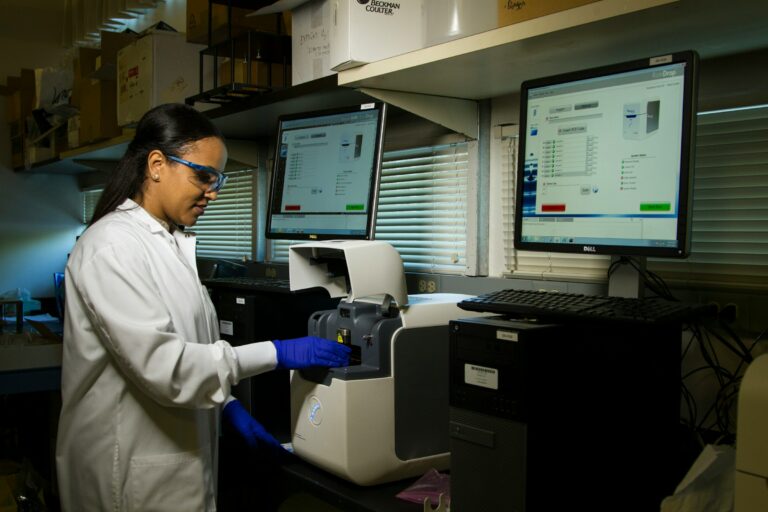
In the rapidly evolving digital age, innovation has become a business imperative for survival – let alone success. Organisations that fail to embrace disruptive technologies, challenge the status quo, and foster a culture of continuous reinvention risk becoming obsolete. At the same time, innovation must be executed thoughtfully and ethically to create true value and sustainable progress.
As a seasoned business leader with decades of experience driving transformative change across diverse sectors, I firmly believe that true innovators do not merely follow trends – they shape the future with vision and integrity. And in today’s hyper-connected digital realm, that vision must extend beyond incremental iterations to pioneering revolutionary new paradigms of business and society.
Why the ethics of innovation matter
The ethics of innovation matter because, in our hyper-connected world, the ripple effects of unethical practices can extend far beyond any single organisation. Facebook’s botched foray into digital currencies and the recent public outcry over AI’s potential to cause societal harm underscore how rapidly the tide can turn against even well-intentioned innovators who fail to consider the broader implications of their disruptive inventions.
The most decisive leaders understand that upholding the highest ethical standards from the outset is not just the right moral choice but rather a business imperative. Developing an expansive mindset and roadmap for ethical innovation, from conception to execution, is key to catalysing meaningful progress that resonates across industries, consumers, and communities.
This is the calling today’s trailblazing change agents must answer: catalysing purposeful reinvention with integrity, staying grounded in reality while inspiring visionary ideals, deploying expertise to drive continuous renewal. Only with an unwavering foundation in ethics and authenticity can disruptive dreams be transformed into sustainable visions for the future.
Taking a stand with values-aligned reinvention
As catalysts for purposeful progress, today’s leading innovators must do more than drive iterative improvements – they must challenge conventional thinking by taking an authentic stance with visionary goals.
Consider Apple’s boldly titled visionary Tim Cook, whose introduction as CEO famously encouraged the tech giant to aim farther, run harder, and remain authentically innovative. This philosophy remains as vital for today’s strategic change leaders as when Apple unveiled the iPhone thirteen years ago.
For it is no longer enough to offer concise commentary – leaders must demonstrate continued evolution by embracing comprehensive transformation. From implementing agile product development to fostering entrepreneurial startup-like cultures, from staying grounded in pragmatic realities to inspiring revolutionary new mindsets, modern corporate innovators must catalyse real, lasting progress while upholding ethical integrity.
The true calling of modern innovators is to authentically transform organisations from within – challenging conventional wisdom while upholding ethical integrity every step of the way.
Strategic innovation: Opportunity from crisis
In times of crisis, true visionaries see opportunity. Seasoned strategic leaders understand that the surest path to exponential growth lies in harnessing adversity to drive audacious reinvention.
As recent turbulent years have highlighted, catalysts for transformative change can arise from the most unexpected sources – be they global pandemics, escalating cyberthreats, or evolving societal shifts. However, the boldest innovators recognise such inflection points not as obstacles but as opportunities to disrupt and redefine the status quo.
Consider how the rapid acceleration of digital adoption prompted by the COVID-19 pandemic created an urgent need for organisations to innovate their business models almost overnight. Those that rose to the challenge found creative ways not just to survive but to thrive amid crisis by reimagining the very core of their value proposition.
Similarly, as societal shifts and technological innovations reshape consumer behaviours across industries, the most resilient organisations are those that view these disruptions not as threats but as catalysts for reinvention. In an era where AI-fuelled disruption is the new norm, ethical innovators are
translating existential risks into opportunities to inspire meaningful progress.
A stellar example is Anthropic, the AI research company that defied convention by prioritising ethical guardrails from its founding. Its ground-breaking “Constitutional AI” aligns advanced AI capabilities with constitutional principles, preventing potential societal harm while exploring AI’s transformative potential. Such ethical innovation offers a stark contrast against the dystopian narratives dominating headlines.
Driving values-aligned reinvention
Today’s leading innovators must do more than drive iterative improvements—they must challenge conventional thinking with visionary goals grounded in authenticity. This requires a multi-faceted approach:
- Implementing agile product development methodologies: in my recent endeavours to grow a business, we have leveraged agile principles to rapidly develop and deploy new digital products, resulting in a 50% growth projection for the company’s digital business over the next three years.
- Fostering entrepreneurial, startup-like cultures within established organisations: During my tenure at a major coop industrial and services business conglomerate, I spearheaded the launch of more than a dozen of new startups and products in the energy and sustainability, retail or technology sectors, demonstrating how large organisations can cultivate innovation from within.
- Balancing pragmatic realities with revolutionary mindsets: My experience leading an innovation process to develop an on demand accessible minibuses showcases how organisations can leverage cutting-edge technology to address pressing social needs while also improving operational efficiency.
- Investing in digital skills and capabilities: establishing a digital skills development programme to grow internal digital community and up-skill our organisation’s capabilities, ensuring the organisation is prepared for the challenges of tomorrow.
- Embracing data-driven decision-making: by implementing a comprehensive data compliance initiative in a previous role, we not only shielded the company from potential regulatory penalties but also laid the groundwork for more informed, data-driven strategies.
The future favours the ethically resilient
In the rapidly evolving digital economy, stagnation and incrementalism equate to atrophy. As technologies exponentially accelerate disruption across industries, the resilient leaders who will thrive are those courageously driving ethical, purposeful reinvention from within.
Whether catalysing organisational transformation to deliver differentiated consumer value or pioneering ethically-aligned technological breakthroughs, these innovators will shape a reality far beyond incrementalism – one defined by visionary solutions that create sustainable progress for the many, not just the privileged few.
As someone who has consistently driven innovation across various industries—from transportation to energy and sustainability—I can attest that the opportunities for ethical innovation are boundless. However, seizing these opportunities requires more than just technical expertise. It demands a deep commitment to ethical principles, a willingness to challenge the status quo, and the ability to inspire and lead diverse teams towards a common goal.
The path forward for corporate innovation leaders is clear: we must embrace ethical innovation not as a constraint, but as a catalyst for creating meaningful, lasting value. By aligning our innovation efforts with broader societal needs and ethical considerations, we can drive business success while also contributing to a more sustainable and equitable future.
For those with the conviction to continually reinvent themselves and redefine the art of the possible, the future is bright. Let’s seize these opportunities, with integrity as our guiding force, and lead the journey into the ethical future we need.

Izaro Arbelaiz
Izaro is the former Head of Digitalisation and Innovation at Siemens Mobility. With over two decades of experience driving disruptive change across global corporations, Izaro specialises in architecting and executing bold innovation strategies that propel organisations to the forefront of their industries.



